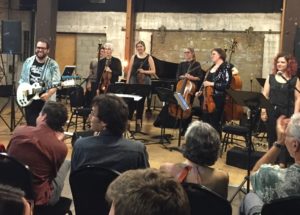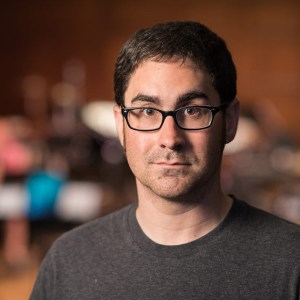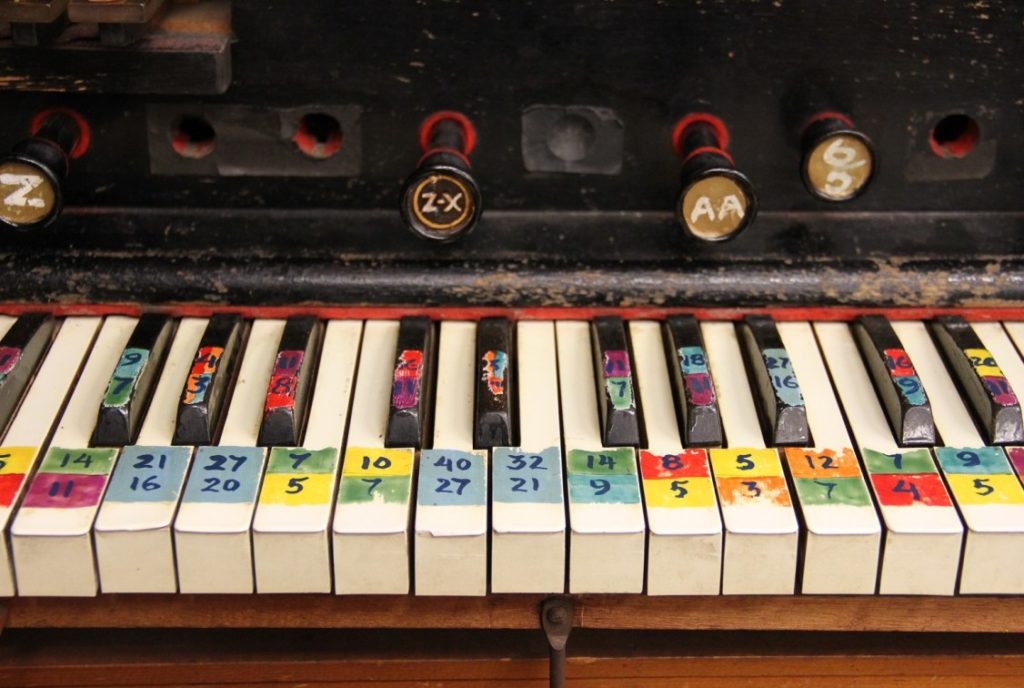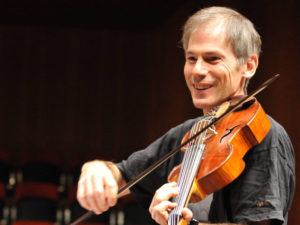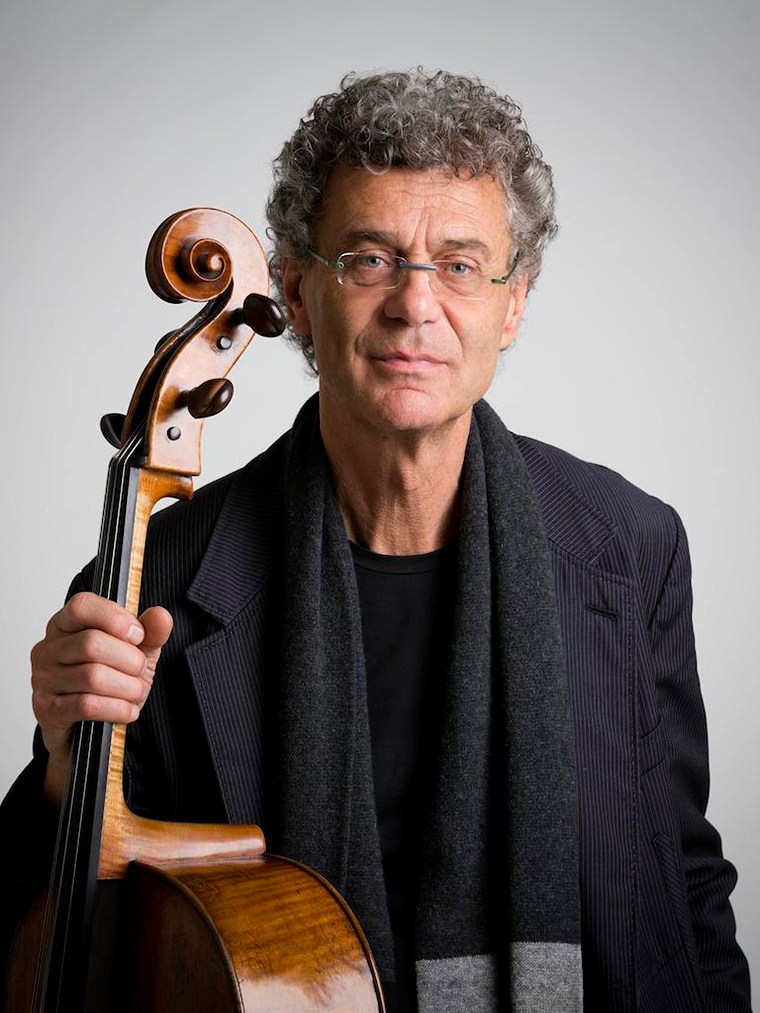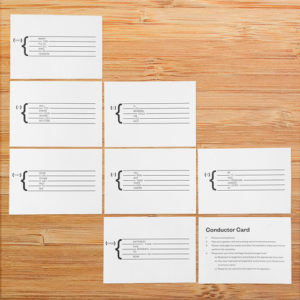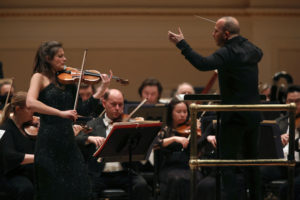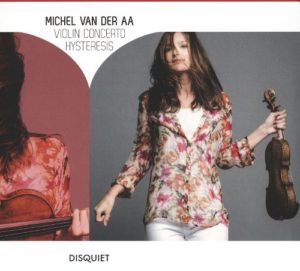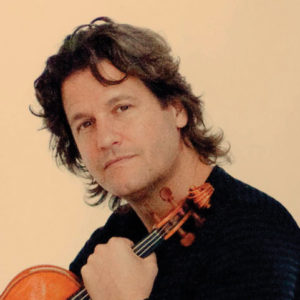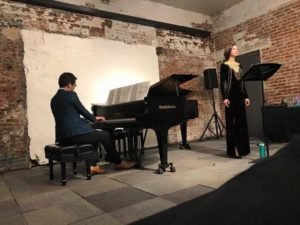NEW YORK – On February 10th, 2018, Architek Percussion and TAK ensemble presented five US premieres in the DiMenna Center for Classical Music’s Benzaquen Hall. The program, charmingly titled ArchiTAK, was composed entirely of new music by New York and Montreal composers. Walking into the hall expecting some sort of configuration to accommodate five percussionists, a flautist, clarinetist, violinist, and vocalist, I was instead greeted by nine chairs in a tight, even row behind nine microphones. I heard members of TAK ensemble behind me discussing the location of “the knives.” I was ready to expect the unexpected as the program began with Myriam Bleau’s Separation Space. The piece began with these nine performers manipulating electronically processed microphones with tapping, scratching, sandpaper, and yes, a chef’s knife. Adding to the rich amalgam building in the speakers, performers began to play pre-recorded media from cellphones, and two began to sing in a close, gently pulsing dissonance. The work was an excellent opening to the program. I found myself having a thought that I would return to many times throughout this program. New music can be strange, intimate, challenging, and moving, and in capable hands, can be all four at once. Taylor Brook’s Incantation left the stage to Architek Percussion, with each member of the quartet equipped with a hi-hat prepared with a small towel, two metals bars (each tuned to form a microtonal octachord spanning the width of about 2 semitones), a brake drum, and a violin bow. Early questions I raised to myself about the authenticity of their performance considering the handicap of headphones (presumably playing a click) were quickly replaced with a respect for these performers as they flawlessly moved through the aggressively fast and equally demanding piece with incredibly tight ensemble. The first half of the program concluded with A Song About Saint Edward the Confessor by Isaiah Ceccarelli, which again utilized the full complement of players. Opening as a vocalise before later unfolding into a proper song, the piece capitalized on vocalist Charlotte Mundy’s unaffected voice and pure tone, while still leaving her room to realize a richly expressive performance. While her diction was very clear and the hall was intimite, I felt that omitting the text from the program was a missed opportunity.
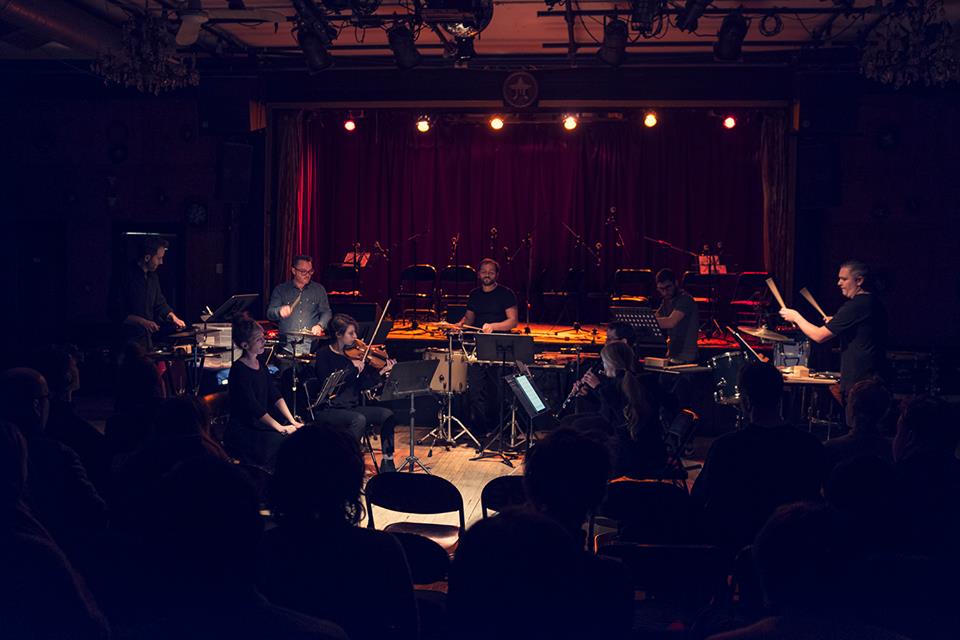
Moments into New York composer David Bird’s Descartes and the Clockwork Girl, I understood why this was programmed after a short break. I again found myself considering the strange, intimate, challenging, and moving as the piece worked through timbre pairings that were as conceptually attractive and musically effective. I am still particularly taken with Carlos Cordeiro’s performance, balancing passages that demand incredible dexterity with clean, sustained bass clarinet multiphonics. The program concluded with Taylor Brook’s Pulses. For the fifth time that night, I found myself almost entirely outside of time, so engrossed in the performance that I honestly could not give an accurate break-down of the roughly 90 minute program.
After the final piece concluded and members of Architek Percussion and TAK received a strong round of much deserved applause, a gesture towards the audience revealed that both David Bird and Taylor Brook were in attendance for this performance. For all these musicians did to curate and present moving and compelling works of new music, there were several missed opportunities in the presentation of the program itself that could have gone a long way to making the music more accessible. Given that each piece contained such evocative, programmatic titles, I have a feeling including program notes would have provided audience members with a better vocabulary to appreciate the work of both the composers and performers. With a composer present for three of the five pieces on the program, I feel it was a real missed opportunity not to hear about their work from them, especially considering the intimate nature of the venue.
ARCHITAK
Myriam Bleau —Separation Space
Taylor Brook — Incantation
Isaiah Ceccarelli — A Song About Saint Edward the Confessor
David Bird — Descartes and the Clockwork Girl
Taylor Brook — Pulses
Architek Percussion: Ben Duinker, Mark Morton, Ben Reimer, Alessandro Valiante
TAK ensemble: Charlotte Mundy, voice; Laura Cocks, flute; Carlos Cordeiro, clarinet; Marina Kifferstein, violin; Ellery Trafford, percussion
